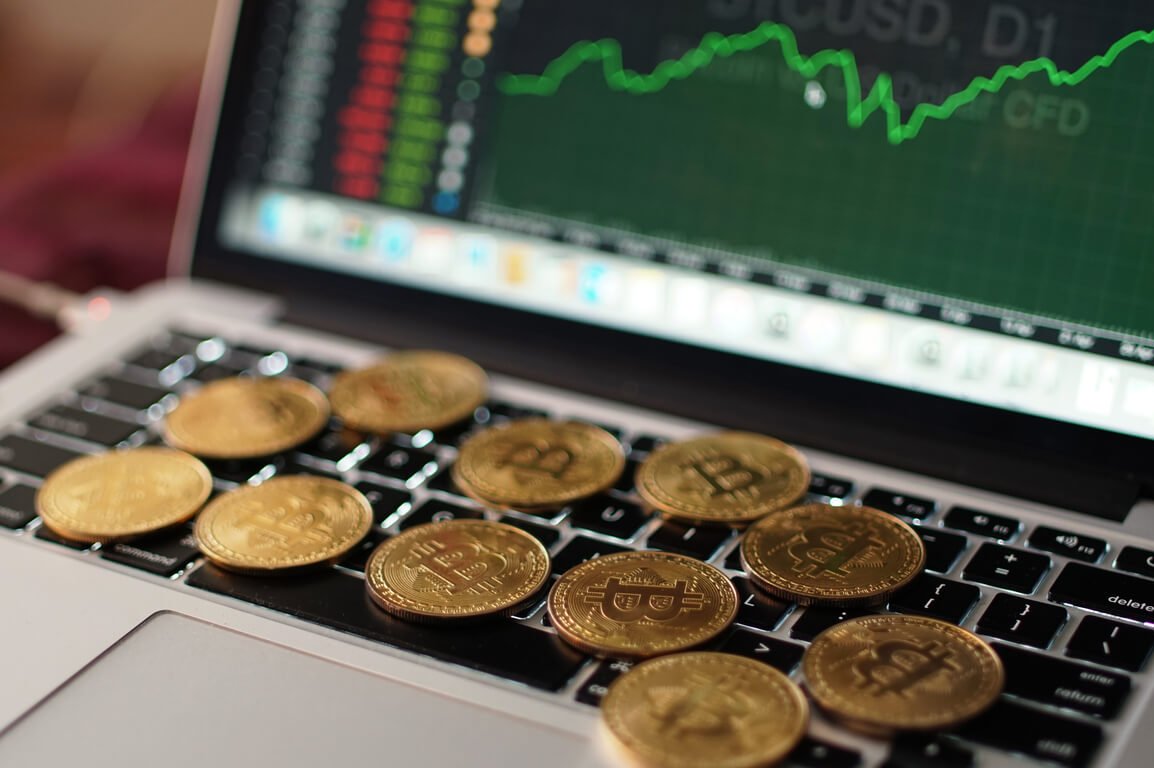

Day trading is becoming increasingly popular in the cryptocurrency sphere as investors look for ways to profit from the market’s volatility.
Day trading’s hectic and fast-paced nature means it isn’t for everyone, but for those with enough knowledge, money, and discipline, it can be an enjoyable and exciting way to trade cryptocurrencies.
What is day trading?
Day trading means buying and selling financial instruments within a single trading day. Some traders will hold assets for only a few minutes, or even seconds, before selling them on again.
It is very different to long-term investing, when investors buy assets with a view to holding for several years as they appreciate in value.
Day traders usually carry out several trades, and the goal is to find opportunities to make a small but quick profit. These opportunities could stem from economic news, regulatory announcements, or corporate results – anything that could cause a sudden spike in the price of the asset they’re trading.
Day trading is most common in the foreign exchange and stock markets, but it is now growing in popularity in the cryptocurrency market as well.
Day trading styles
There are lots of different day trading styles, but the two most common are speculation and chart analysis.
Speculation is when a trader believes the price of an asset will increase or decrease because of a certain event, such as a positive news story or announcement. It is based purely on the trader’s own opinion.
Chart analysis involves studying historical price movements and using these to try to figure out where the market could be heading next.
Day trading cryptocurrencies
Day trading cryptocurrencies is essentially like day trading any other asset – the aim is to buy low and sell high.
There is, however, one important differentiator: volatility. If you’re trading FTSE 100 stocks, it’s unlikely their price will change significantly in a 24-hour period because they are large, stable companies.
Cryptocurrencies can experience huge price swings – sometimes by up to 50% in just one day. This means that while day traders could make relatively big profits quickly, they could lose money just as fast.
There are two main ways of day trading cryptocurrencies: through a crypto exchange or via derivatives.
Trading on a crypto exchange
Crypto exchanges enable you to buy and sell coins 24 hours a day. Exchanges vary significantly in terms of the coin pairings they offer, fee structures, and minimum trade amounts, so it’s worth taking your time to research each one.
The amount of liquidity on each exchange also varies. Liquidity is important because it ensures you will be matched with a buyer or seller and therefore able to close your trade.
It’s worth registering with a few exchanges so that you can compare the coin’s price and find arbitrage opportunities.
Once you’ve created an exchange account, you’ll need to put up the full value of the asset to open a position and store the cryptocurrency tokens in your own wallet until you’re ready to sell.
Derivatives trading
Derivatives trading lets you speculate on cryptocurrency price movements without actually owning the coins. You can do this through a spread betting or contracts for difference (CFD) account.
In derivatives trading, you ‘go long’ (buy) if you think a cryptocurrency will rise in value, or ‘short’ (sell) if you think its value will fall.
Spread betting and CFD trading involves leveraged products – financial instruments that enable traders to gain greater exposure to the market without increasing their investment.
This means you only need to put up a small deposit – known as a margin – to gain full exposure to the underlying market.
Profits or losses in derivatives trading are calculated according to the full size of your position, meaning profits and losses will be magnified.
Exercise caution
There have been some amazing stories of people who have earned huge amounts of money by investing in Bitcoin and other cryptocurrencies.
If you’re thinking of getting into day trading, it’s safe to assume you won’t be one of those people.
It can take months or even years of practice to get the hang of day trading, and even the best traders only make small profits (over a large number of trades).
The chances of making a loss are high, so beginners should start small and everyone should only trade what they can afford to lose.
Denver, Colorado, 24th February 2025, Chainwire
Denver, Colorado, 20th February 2025, Chainwire
Washington, D.C., 18th February 2025, Chainwire
Dubai, UAE, 27th January 2025, Chainwire
Those who enter the market at this time may be surprised to hear that Bitcoin…
George Town, Grand Cayman, 22nd November 2024, Chainwire